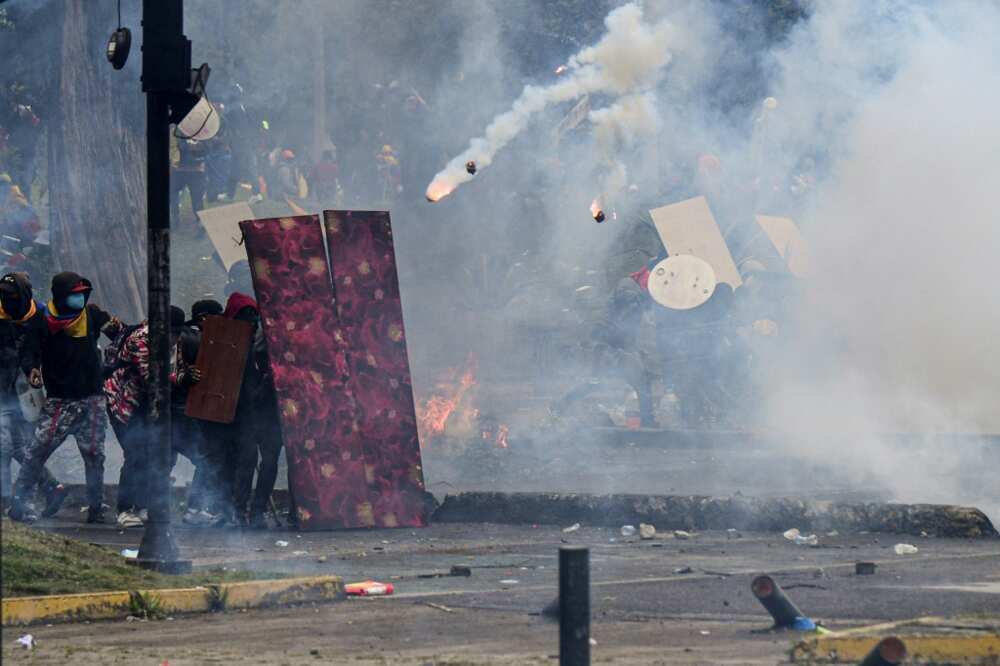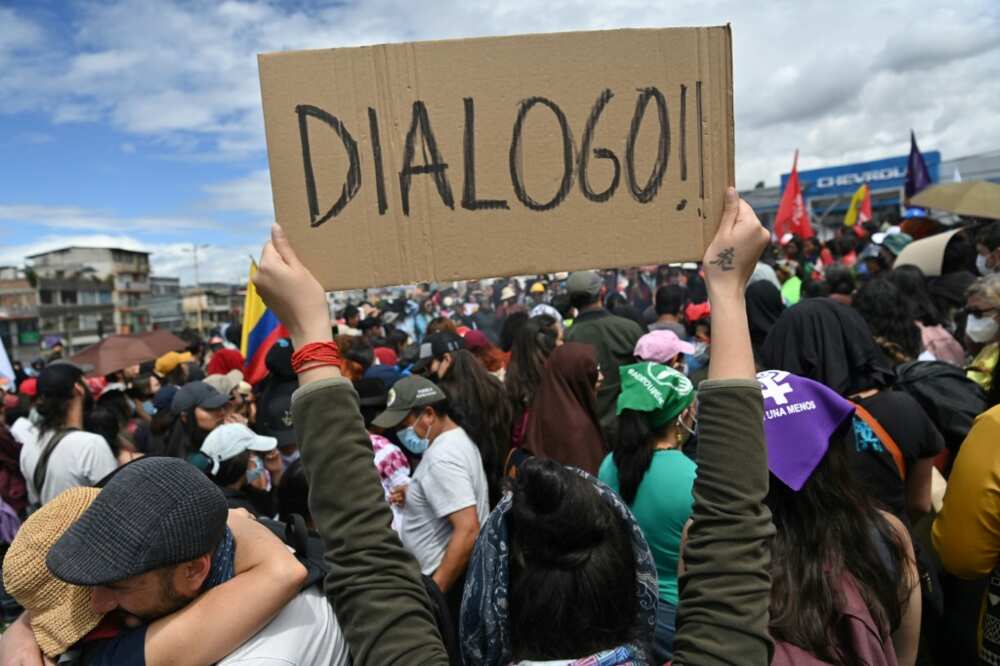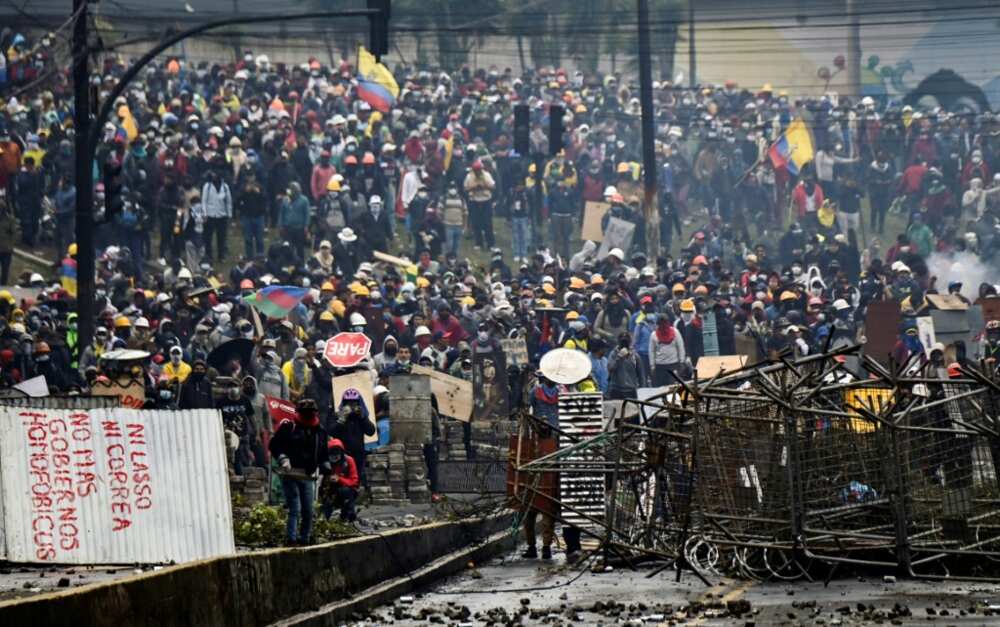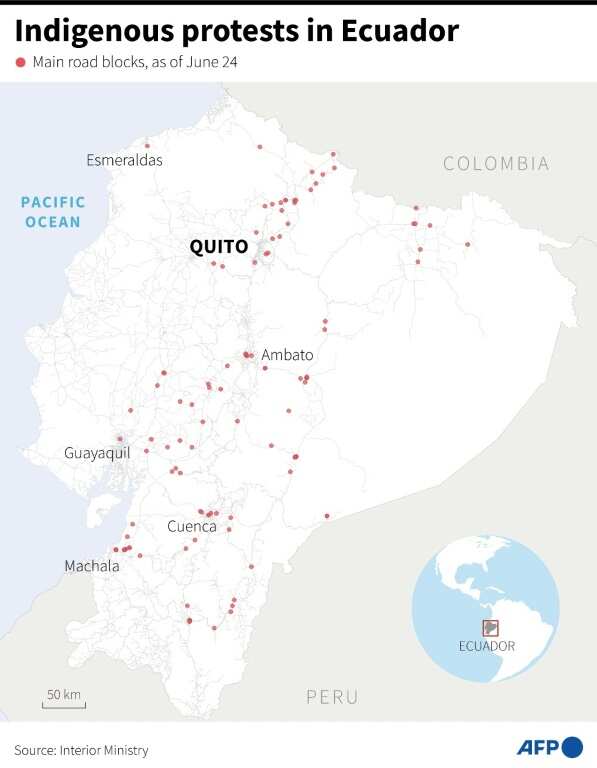Ecuador president faces ouster vote on 13th day of fuel price protests

Source: AFP
Ecuador's president will face a no confidence vote Saturday, nearly two weeks into sometimes violent countrywide protests led by Indigenous groups against rising fuel prices and living costs.
Opposition lawmakers called the parliamentary session over what they say is President Guillermo Lasso's role in "the serious political crisis and internal commotion" that has left six civilians dead and dozens injured on both sides in 13 days of revolt.
An estimated 14,000 protesters are taking part in a nationwide show of discontent against rising hardship in an economy dealt a serious blow by the coronavirus pandemic.

Source: AFP
Most of the ire is concentrated in the capital Quito, where some 10,000 people, most from other parts of the country, have gathered for daily protests, marching with sticks and makeshift shields, and chanting "Out Lasso, out!"
PAY ATTENTION: Subscribe to Digital Talk newsletter to receive must-know business stories and succeed BIG!
On Friday, Lasso accused demonstrators of attempting "a coup" after two straight days of violent clashes with police and soldiers.
Protesters in Quito threw rocks and Molotov cocktails and shot off fireworks near the congress building. The security forces repelled them with tear gas.
'Until we have results'
The protests were called by the powerful Confederation of Indigenous Nationalities of Ecuador (Conaie), credited with bringing down three presidents between 1997 and 2005.
Conaie leader Leonidas Iza told AFP this week demonstrations would continue "until we have results. We can no longer hold back the anger of the people."

Source: AFP
The action has been costly, with losses of some $50 million per day to the economy. Production of fuel -- Ecuador's biggest export -- has been halved, according to the energy ministry.
Six of the country's 24 provinces are under a state of emergency and a night-time curfew is in place in Quito, where business owners and workers in the capital are fed up with the disruption to their lives and livelihoods.
Protesters are demanding a cut in already subsidized fuel prices, which have risen sharply in recent months, as well as jobs, food price controls, and more public spending on healthcare and education.
Ecuador's National Assembly will meet at 6:00 pm (2300 GMT) on Saturday to vote on whether or not to oust Lasso, a conservative ex-banker who took power a year ago and who is self-isolating after a Covid-19 diagnosis.

Source: AFP
The vote takes place at the request of the 47 lawmakers of the leftist opposition Union for Hope coalition.
Lasso's dismissal would require 92 votes out of 137 in the assembly, in which opposition parties are in the majority.
If Lasso is unseated, Vice President Alfredo Borrero will assume interim power and call new presidential and legislative elections.
The government has rejected the protesters' demand for a fuel price cut, saying it would cost the government an unaffordable $1 billion per year.
Both sides have accused each other of intransigence, and no negotiations have been programmed to try and bring an end to the standoff.
Source: AFP



